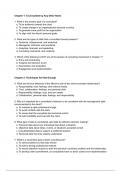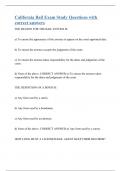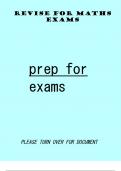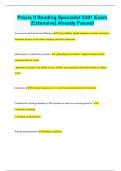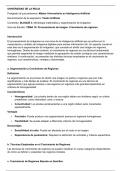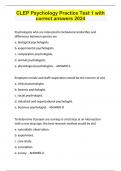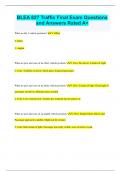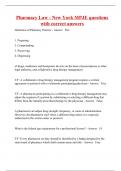Exam (elaborations)
Practice Exam Flawless Consulting - Consulting Methods (6013B0526Y)
- Course
- Institution
42 Multiple choice questions with answer key at the end about the book Flawless Consulting, a requirement for the course Consulting Methods (6013B0526Y), part of the minor Business Administration: Managing Strategy and Marketing at the University of Amsterdam
[Show more]
